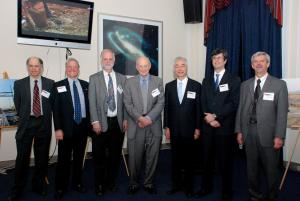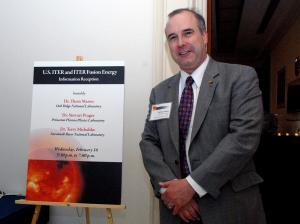ITER fuel: High tech and smart people
While on Capitol Hill in Washington the Federal Budget (and thus the budgets for many American scientific endeavors) was eagerly disputed this week, only a stone's throw away in the Rayburn Building the ITER Project stepped onto an exceptional stage by inviting members of the US Congress to an evening reception.
Amongst the guests that evening was Congressman Rush Holt from New Jersey, introduced as having "a long history in fusion" by Thom Mason, Director of the Department of Energy's Oak Ridge National Laboratory (ORNL). "A long history...and I hope a future too!" countered Holt.




